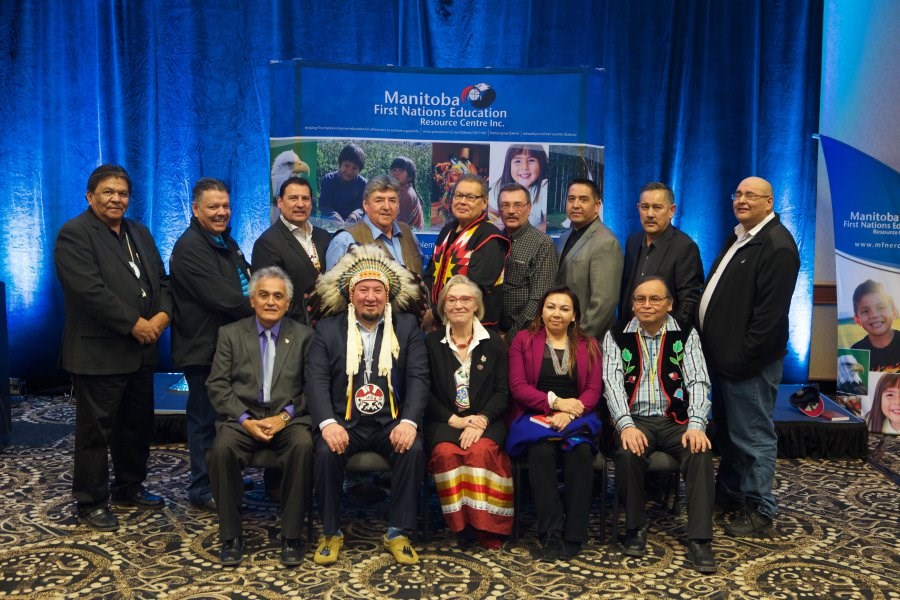The Manitoba First Nations Education resource Centre (MFNERC) and eight Manitoba First Nations, including Fox Lake Cree Nation, signed an agreement Dec. 16 with the federal government to create a Manitoba First Nations school board that will operate for the 2017-18 school year.
Other participating First Nations are Bloodvein First Nation, Brokenhead Ojibway Nation, Dakota Plains Wahpeton First Nation, Keeseekoowenin Ojibway Nations, Lake Manitoba First Nation, Pinaymootang First Nation and Roseau River Anishnabe First Nation. Lake St. Martin First Nation, Mathias Colomb Cree Nation, Sagkeeng First Nation and York Factory First Nation have also indicated interest in joining the Manitoba First Nations School System, the Assembly of Manitoba Chiefs (AMC) said in a press release.
“Today we are celebrating a milestone for Manitoba First Nations children by revitalizing our culture, languages and traditions within schools on-reserve,” said AMC Grand Chief Derek Nepinak. “For years, First Nations were deliberately forced into a school system that took away their identify as a Nehetheo, Anishnaabe and Dakota. This left damaging effects within our nations and amongst our people that can still be felt today.”
The Manitoba First Nations School System will administer and manage elementary and secondary education programs and services for participating First Nations, the MFNERC says. The system will be the first of its kind in Canada – a First Nations designed school system with funding comparable to provincial school districts. It will also include enhanced funding for indigenous language, culture and programming to foster academic achievement and be flexible to allow for salaries, technology and support services for teachers and students comparable to those in the provincial education system.
“We are honoured to accept responsibility for education from the First Nations that are signing this historical agreement,” said MFNERC executive director Lorne C. Keeper. “The future looks bright for our children and youth with the increased funding that will allow for culturally relevant and high-quality academic programming.”
The MFNERC is an AMC-mandated organization directed by the chiefs in assembly, who passed a resolution in 2012 for it to offer similar services to those provided by school boards in the provincially funded education system.
“It is timely for the signing of this agreement, as it is a move for Canada to follow up on some of the calls-to-action of the Truth and Reconciliation Commission report,” said Nepinak. “The AMC remains willing to assist the MFNERC and the 12 First Nations in carrying out the agreement. This includes ensuring that they incorporate First Nations tradition, culture and language, and develop their own First Nations education law and standards, but also meet the needs of the provincial school standards. This will allow First Nation students to succeed in mainstream society while being proud of their First Nation heritage and who they are. I also want to congratulate the Manitoba Chiefs who provided this direction and the First Nation communities that are signed onto this agreement.”
“First Nations control over First Nation education is critical to support indigenous pedagogy and learning environments that foster the secure personal identity of its students,” said federal Indigenous and North Affairs Minister Carolyn Bennett, who signed the agreement on the federal government’s behalf. “Today we celebrate the vision and determination of First Nations in Manitoba by signing this historic education agreement.”




